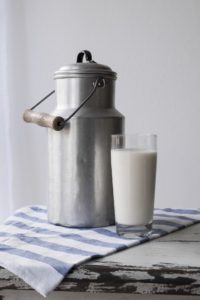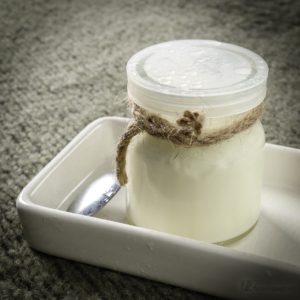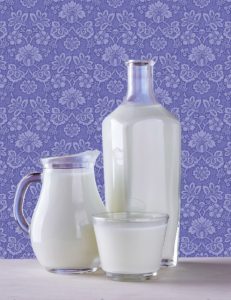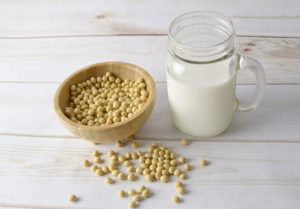Dairy Products for Endometriosis
Considering their role as excellent sources of calcium, incorporating dairy products into the daily diet can be beneficial for individuals with endometriosis. The calcium content within these products can have a positive impact on hormone production, contributing to reduced inflammation and improved immune system function in the context of endometriosis. However, it is important to be mindful of potential negative effects stemming from histamines and animal fats, making certain dairy products more favorable than others. Alternatively, vegan sources of calcium present a viable option as well.
Low-Fat Dairy Products Reduce the Risk of Endometriosis
Consuming low-fat dairy products can potentially diminish the risk of endometriosis as suggested by a study conducted in the USA. The study revealed that women who incorporated a minimum of three servings of low-fat dairy items daily demonstrated an 18% decrease in their likelihood of developing endometriosis [1]. The researchers further delved into the connection between calcium present in dairy products and the outcomes. They examined the vitamin D levels of these women, recognizing vitamin D as a facilitator for the efficient utilization of calcium within the human body. The study’s outcome indicated that women boasting elevated vitamin D levels experienced a noteworthy 24% decrease in the risk of endometriosis development [1].
In contrast to certain assertions, it is improbable that the minute quantities of hormones found in animal milk wield detrimental effects on the human body. Although milk contains more estrogen than other food sources, the amount assimilated by the body from milk is exceedingly low – measured per mile – when compared to the body’s own endogenous production [3].
Calcium’s Anti-Inflammatory Effects
Research involving mice has unveiled the potential of calcium to mitigate oxidative stress and inflammation within the body. Oxidative stress, an intrinsic process, leads to cellular damage, instigates inflammatory responses, and expedites aging. Remarkably, an animal study involving mice [4] indicated that dairy products also play a role in diminishing this oxidative stress.
Hence, it is plausible that dairy products hinder inflammatory reactions via their calcium content, influencing specific hormones (angiotensins) positively through calcium interactions. Moreover, these products fortify the immune system by fostering specific immune system messenger molecules (cytokines).
Beneficial Role of Magnesium in Endometriosis
Magnesium, present in dairy products, offers assistance for endometriosis. Its contributions are manifold: it eases muscle tension, potentially alleviating cramps and pain. Additionally, it aids in reducing inflammation markers within the bloodstream and bolsters the immune system by augmenting cytokine production.
Preventive Efficacy of Dairy Products for Endometriosis Backed by 14 Years of Research

Milchprodukte bei Endometriose vorbeugend wirksam
A comprehensive investigation spanning over 14 years and involving a cohort of more than 70,000 women conducted by American researchers [1] delved into the behavior of dairy products in relation to endometriosis. Their focus centered on key substances inherent in dairy products, namely:
- Calcium
- Magnesium
- Phosphorus
- Vitamin D.
Vitamin D, a “helper” for calcium absorption, plays a distinctive role. It is present in dairy products in limited quantities and is synthesized by the human body when exposed to sunlight [5].
For further insights on sunlight and vitamin D, refer to this link.
After the extensive 14-year study period, the outcomes demonstrated a noteworthy trend: higher consumption of low-fat dairy products corresponded to a diminished risk of endometriosis (18%). Moreover, an augmented intake of calcium, magnesium, and phosphorus via dairy products correlated with a decreased likelihood of endometriosis development. [1]
Regarding vitamin D, the study found that optimal vitamin D levels could potentially reduce the risk of endometriosis by up to 24%. However, the source of this vitamin – whether sunlight, dairy products, or dietary supplements – was not specified.
Choosing Dairy Products Wisely for Endometriosis
 Animal fats, due to their role in promoting inflammation and contributing to adverse health effects like cholesterol, arteriosclerosis, and cardiovascular diseases, are generally regarded as unhealthy. To maintain the positive impact on endometriosis while avoiding the detrimental effects of inflammation-inducing animal fates, the consumption of only low-fat dairy products is recommended.
Animal fats, due to their role in promoting inflammation and contributing to adverse health effects like cholesterol, arteriosclerosis, and cardiovascular diseases, are generally regarded as unhealthy. To maintain the positive impact on endometriosis while avoiding the detrimental effects of inflammation-inducing animal fates, the consumption of only low-fat dairy products is recommended.
The unsuitability of Hard Cheese
The calcium, magnesium, and phosphorus content of a dairy product tends to be higher when it contains less water. Consequently, aged and drier cheeses like Gouda contain elevated levels of these minerals in comparison to a glass of milk. However, an important consideration in the context of endometriosis is histamine, a compound that can exacerbate the disease’s symptoms such as pain and inflammation, as well as negatively affect mental well-being [2].
Histamine, a natural messenger substance, is generated by the body and plays roles in various functions including inflammatory responses and pain perception. Additionally, a study from the United States indicates that women who consume significant amounts of dietary histamine have a notably elevated risk of experiencing depression or anxiety disorders. As a result, it is advisable to avoid hard cheeses (like Parmesan, Gouda, Emmental, etc.) for individuals with endometriosis.
Recommended Skimmed Milk Products for Endometriosis

Not all dairy products are equally suited for endometriosis.
- Skimmed milk
- Low-fat yogurt
- Low-fat curd cheese
- Cream cheese
- Buttermilk
- Ayran
- Kefir
- Soured milk
- Sour cream (as an alternative to cream or crème fraîche).
Are Plant-Based Dairy Products a Good Alternative?

Plant-based dairy products for endometriosis are more beneficial when enriched with calcium.
Plant-based dairy products, derived from sources like soy, nuts, or cereals, are experiencing a surge in popularity. However, their composition varies significantly based on the manufacturing process and the primary ingredient. The common thread among these alternatives is their absence of unhealthy animal fats.
Nuts and almonds, for instance, boast relatively higher calcium levels, whereas rice and soy exhibit minimal calcium content. To mirror the calcium concentration found in cow’s milk (approximately 120 mg/100ml) [5], plant-based dairy items are often artificially supplemented to achieve comparable calcium levels. It is only then that they can serve as a healthy substitute for cow’s milk, specifically in terms of calcium and its implications for endometriosis.
Additional non-animal sources of calcium encompass nuts, almonds, flaxseed, select mineral water, and red algae. Notably, red algae also offer a pronounced advantage in managing endometriosis due to their omega-3 fatty acids content, which is renowned for mitigating inflammation and pain.

Dairy products can be a potential ally for endometriosis!
In Conclusion:
A study demonstrated that consuming a minimum of 3 servings of low-fat dairy products daily can lower the risk of endometriosis. Thanks to their calcium and magnesium content, low-fat dairy options can potentially alleviate inflammation and pain connected to endometriosis. However, it is essential to steer clear of hard cheese due to its high histamine content, which can exacerbate pain, and inflammation, and negatively impact mental well-being. Plant-based dairy alternatives naturally contain less calcium, making fortification essential. For vegans, calcium-rich sources encompass nuts, almonds, and red algae.
References
- Finding the Perfect Nutritionist: A Step-by-Step Guide - 5. October 2023
- Does Monk’s Pepper Help with Endometriosis? - 5. October 2023
- A Brief Overview of Dietary Fats - 29. September 2023
